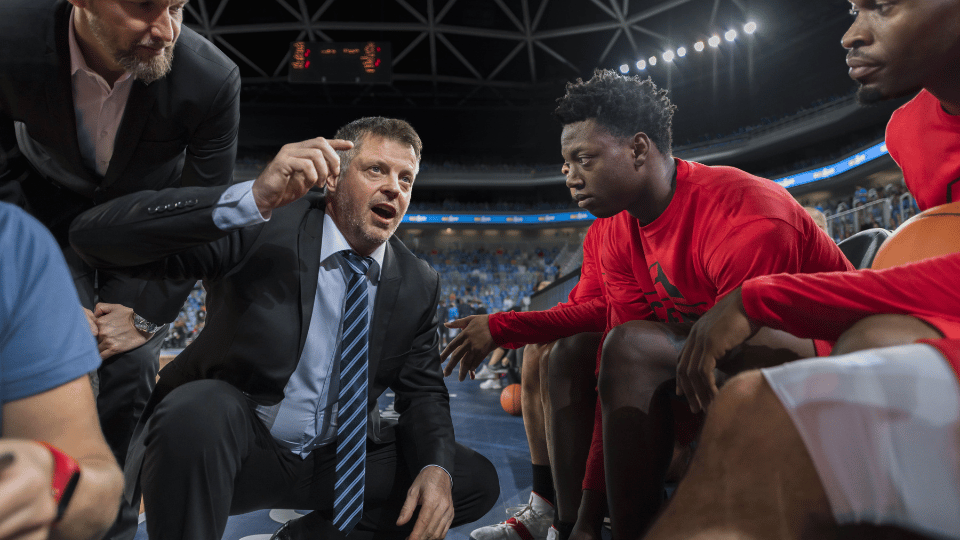Sports Management Careers: Exploring Opportunities in the Sports Industry
Sports management is a dynamic and rapidly growing field that offers exciting career prospects for individuals passionate about sports and business. With the global sports industry generating billions of dollars each year, the demand for skilled professionals in sports management has never been higher.
Whether you dream of working with professional athletes, managing sports events, or overseeing the business operations of a sports organization, a career in sports management can open doors to a wide range of opportunities. In this article, we will explore the various career paths available in sports management and discuss the skills and qualifications needed to succeed in this competitive industry.
Sports Agent
Sports agents play a crucial role in representing and managing the careers of professional athletes. They negotiate contracts, endorsement deals, and sponsorship agreements on behalf of their clients. To become a sports agent, it is important to have a strong understanding of contract law, negotiation skills, and a vast network of contacts within the sports industry. Additionally, earning a degree in sports management or a related field can provide a solid foundation for a career as a sports agent.
Sports Marketing Manager
Sports marketing managers are responsible for promoting sports teams, events, and organizations. They develop marketing strategies, manage advertising campaigns, and work closely with sponsors to maximize revenue opportunities. A strong background in marketing and communication, combined with a deep knowledge of the sports industry, is essential for success in this role. Many sports marketing managers also hold advanced degrees in sports management or business administration.
Event Coordinator
Event coordinators in the sports industry are responsible for planning and executing sports events such as tournaments, championships, and conferences. They handle logistics, budgeting, and coordination with various stakeholders to ensure the smooth execution of the event. Attention to detail, organizational skills, and the ability to work under pressure are crucial for event coordinators in the sports industry. A degree in sports management or event planning can provide valuable knowledge and skills for this career path.
Sports Facility Manager
Sports facility managers oversee the operations and maintenance of sports facilities such as stadiums, arenas, and training centers. They handle scheduling, staffing, budgeting, and maintenance to ensure that the facility operates efficiently and provides a positive experience for athletes and spectators. Strong leadership skills, business acumen, and a background in sports management or facility management are important for success in this role.
Athletic Director
Athletic directors are responsible for overseeing the sports programs and activities of educational institutions, such as colleges and universities. They manage budgets, hire coaches, develop sports policies, and ensure compliance with regulations. A strong background in sports management, combined with excellent leadership and communication skills, is essential for this role. Many athletic directors also hold advanced degrees in sports administration or a related field.
Sports Analytics Specialist
In today’s data-driven sports industry, sports analytics specialists play a vital role in helping teams and organizations make informed decisions. They analyze player performance, game statistics, and other data to provide insights and recommendations for improving team performance and strategy. Proficiency in data analysis tools, statistical modeling, and a deep understanding of the sports industry are crucial for success as a sports analytics specialist. A degree in sports management, statistics, or data science can provide a strong foundation for this career path.
Sports Media and Broadcasting
Sports media and broadcasting professionals bring the excitement of sports to fans around the world. They work as sports journalists, broadcasters, commentators, or producers, delivering live coverage, analysis, and interviews. Strong communication skills, knowledge of sports, and the ability to work in a fast-paced environment are essential for success in this field. Many sports media professionals have a degree in journalism, broadcasting, or sports communication.
Sports Sponsorship Manager
Sports sponsorship managers work with companies and organizations to secure sponsorship deals with sports teams, events, and athletes. They negotiate contracts, develop marketing strategies, and ensure that sponsors receive maximum exposure and return on investment. A strong understanding of marketing, sales, and relationship-building is crucial for success in this role. A degree in sports management, marketing, or business administration can provide valuable knowledge and skills for a career in sports sponsorship.
Sports Merchandising Manager
Sports merchandising managers are responsible for managing the sale and distribution of sports merchandise, such as apparel, equipment, and memorabilia. They develop marketing strategies, collaborate with manufacturers and retailers, and analyze market trends to maximize sales and revenue. Strong business acumen, marketing skills, and a passion for sports are important for success in this role. Many sports merchandising managers have a degree in sports management, marketing, or retail management.
Sports Facility Sales Manager
Sports facility sales managers focus on generating revenue through the sale of sports facility rentals, sponsorships, and advertising opportunities. They build relationships with potential clients, negotiate contracts, and develop sales strategies to meet revenue targets. Strong sales skills, business acumen, and a deep understanding of the sports industry are important for success in this role. Many sports facility sales managers have a degree in sports management, business administration, or sales.
Key Takeaways
- Sports management is a rapidly growing field with abundant career opportunities.
- Careers in sports management include sports agents, sports marketing managers, event coordinators, sports facility managers, athletic directors, sports analytics specialists, sports media and broadcasting, sports sponsorship managers, sports merchandising managers, and sports facility sales managers.
- Each career path requires specific skills and qualifications, such as a strong understanding of contract law for sports agents or proficiency in data analysis tools for sports analytics specialists.
- Earning a degree in sports management or a related field can provide a solid foundation for success in the industry.
If you’re passionate about the sports industry and want to enhance your knowledge and skills in sports management, consider taking the NYU Fundamentals of Global Sports Management online course and certificate program offered by Yellowbrick. This comprehensive program, delivered by industry experts, covers key topics such as sports marketing, analytics, finance, and leadership.
By enrolling in this program, you can gain valuable insights and credentials that will give you a competitive edge in the sports management field. Take the next step towards a successful career in sports management with the NYU Fundamentals of Global Sports Management program.




